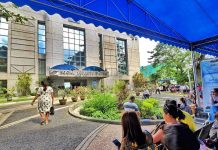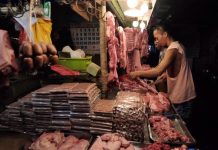President Rodrigo Duterte has been able to raise an unprecedented P1 trillion the total worth of the Official Development Assistance (ODA) in only seven months of his administration.
“It was the most significant amount of ODA that was raised by any president of the country in history,” Finance Secretary Carlos Dominguez III stressed Saturday, adding that the number was increased only from July 2016 to present.
He revealed that it was the “largest amount raised by any new presidents of the country in history,” adding that price worth US$ 18 billion coming from Japan and China, both equivalent to US$9 billion each.
The amount translates to over PhP 890 billion worth of development assistance.
Dominguez clarified that those are voluntarily offered by the two countries and not requests from the Philippine government.
He added that there are ODA from other nations aside from assistance coming from China and Japan and that Dominguez has yet to include in their count.
ODA is defined as government-provided financial loans for infrastructure projects with low-interest rates and long-term payment.
The ODA from Japan and China, according to Dominguez, would be mainly used for infrastructure and development projects.
He said they still need to consult their counterparts in the Japanese government whether their priorities match with the Philippines since Japanese ODA is a new offer.
Dominguez added that they have already submitted a list of projects to China last November 29, 2016 while they are still discussing on the table regarding the JP¥1 trillion assistance offered by Japan.
He added that they would travel to China by the third week of January to discuss how to implement the projects presented to the Chinese Government.
On why the country is receiving such big offers, Dominguez believes that “they see a lot of potential in the Philippine economy under Duterte’s administration,” and considers it as a possibility of the two countries to do business in the country.
Dominguez added that they are prioritizing the infrastructure projects outside Metro Manila.
He emphasized that the infrastructure developments would cover education, training, and other services that will make workers and citizens more competitive abroad aside from environmental projects.
“So it’s not only hard infrastructure but also in education, science and technology, among others,” he added.
As for which projects that Japan ODA would be funding, Dominguez and other economic managers have to decide yet.
“We are going to start lining up our projects starting on Monday to discuss in more details the terms from Japan,” he said.






